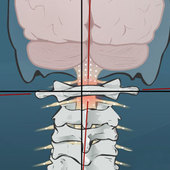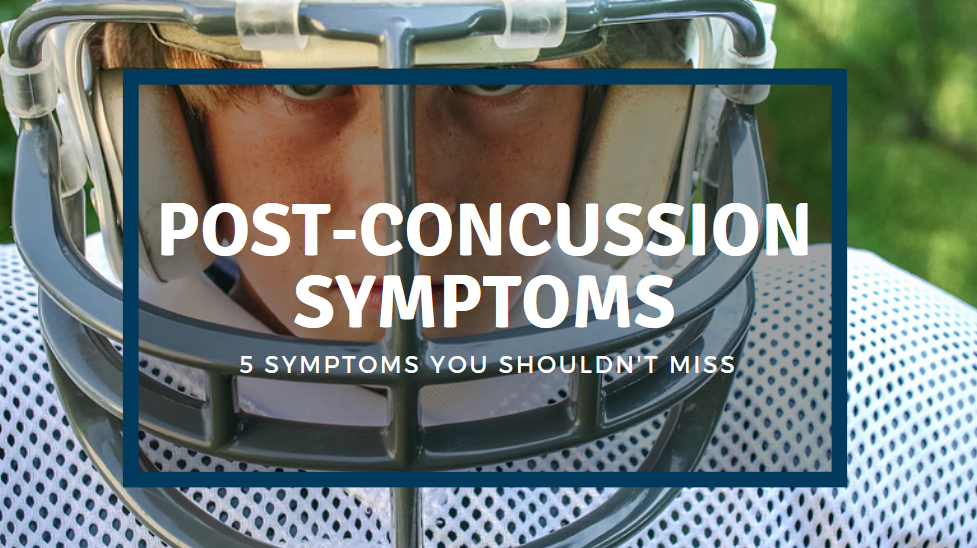
You might feel unlike yourself for a few days before being able to fully function and move the way you want. Or, you could experience nasty side effects like headaches, fatigue, and mood changes that could last anywhere from a couple of days to even months.
Many of our patients come to our office not because they’re looking for a concussion specialist but because they are experiencing unexplainable aches and do not feel at all like themselves. They often do not realize that their pain can be traced back to an accident that happened months or even years ago.
Many may not know this, but these post-concussion symptoms might actually be stemming from a neck injury caused by the impact. Understanding this can help patients manage their pain and ask the right questions.
Read on to learn about what post-concussion syndrome looks like, symptoms that shouldn’t be missed, and what you may be eligible for as a post-concussion treatment in Calgary.
Dr. Mylène Hopf
NUCCA Chiropractic
The Vital Posture™ Clinic
Calgary, Canada
What causes a concussion?
Anyone can easily become injured and get a concussion, either from a fall, car accident, or any blow or whiplash-type of injury where your head shakes quickly back and forth.
The sudden movement of the brain can cause chemical changes or damage brain cells. Depending on the extent of the damage, different symptoms can occur.
Usually, concussions are not life-threatening. They’re often described by doctors as mild injuries. However, the brain is intricately complex, and the effects can be serious, especially when left untreated.
Most people recover quickly from a concussion, depending on their age and how many other brain injuries they may have had in the past.
Those more likely to get concussions often involve professions in sports, construction work, or any other positions where a hard hat or helmet is required as part of a uniform. But you don’t have to be an athlete or even be hit in the head in order to be concussed.
They can happen to anyone, any time, at any place. So, it’s important to spot the signs. Proper care during the first 7 - 10 days is crucial to ensure your recovery, but post-concussion symptoms can be sneaky and may not be as predictable.
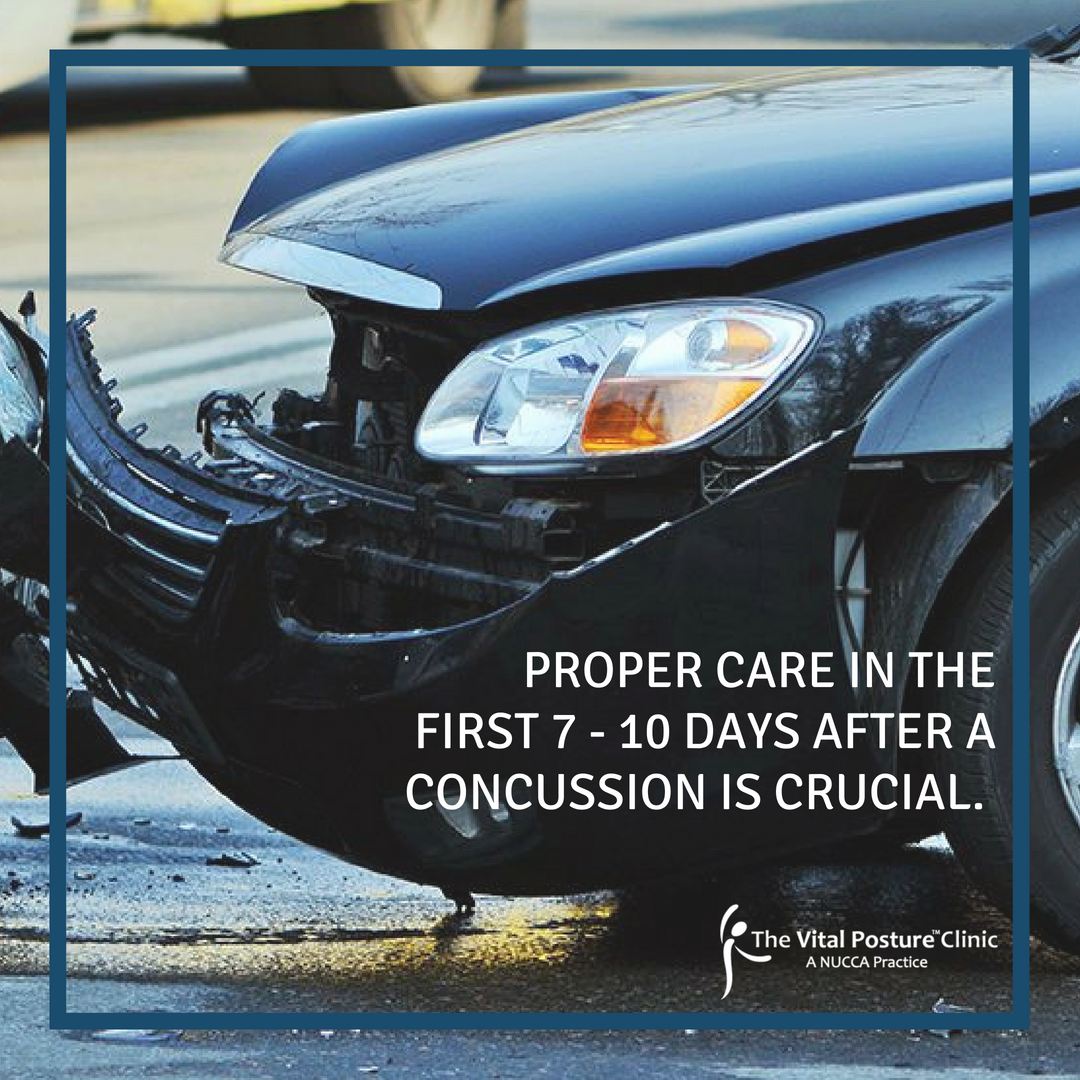
The post-concussion symptoms that are most easily missed
Many people think that all concussions come with a loss of consciousness or immediately after the impact, but that’s not always the case for everyone.
The symptoms of a concussion can vary depending on the severity of injury and the person. Sometimes people can have a concussion without even knowing it. Other people may have a tough time admitting they’re having any trouble.
Sometimes the injury is subtle enough for friends and family to miss as well as doctors. Concussed people can appear fine even if they feel or act differently than usual.
Other times, the symptoms don’t appear right away. It could take days or months until a person begins to show signs or can be able to resume the demands of daily life.
Waiting to get help for days, months, or even years can have a serious impact on a person’s quality of life. It’s important to seek medical attention as soon as you realize a problem might exist and explore treatment options.
After any head injury, it is important to look out for certain signs and symptoms and seek medical treatment immediately, but some symptoms are easily missed.
The post-concussion symptoms that should never be missed or dismissed as another problem include the following potentially serious issues.
1. Confusion or brain fog
Difficulty thinking is one of the first signs of a concussion.
Those with trouble paying attention or feeling foggy may also experience problems with memory as well. Often, people with head injuries will have amnesia and may not remember being in an accident or receiving an injury at all.
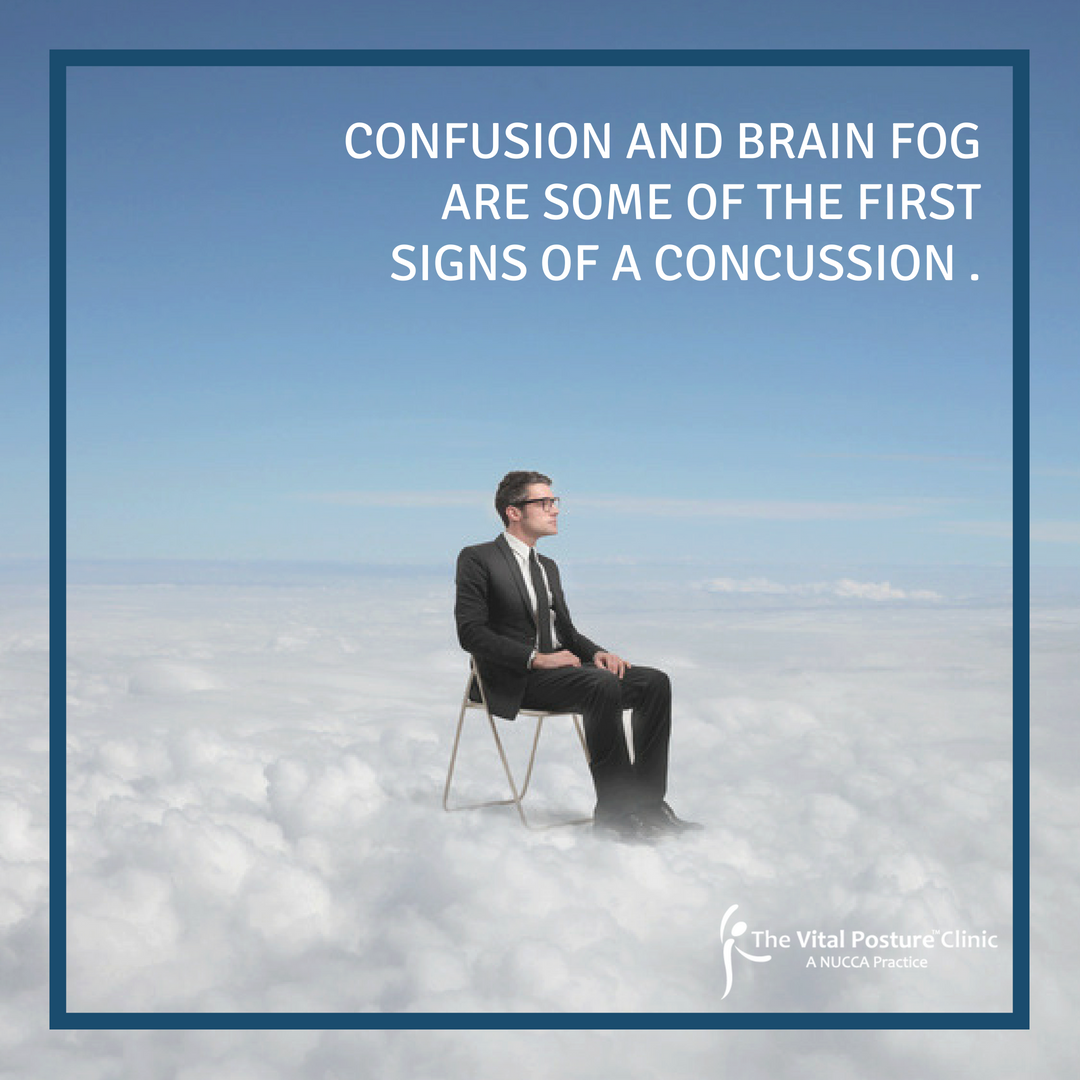
2. Headaches and sensitivity to light or noise
Physical symptoms such as mild and severe headaches can accompany a reduced tolerance to light or noise, which seems like the signs of a migraine. However, concussions also produce many of the same symptoms.3. Changes in sleeping patterns
Changes in sleep can vary drastically for different people.Often, a concussion is characterized by unconsciousness, even for a brief period of time, the inability to wake up or stay awake, or trouble falling asleep. Other people can experience sleeping more than usual.
Constant sleep disturbances can be a sign that you need to see a healthcare professional.
4. Unusual behavior
Irritability, sadness, or mood changes can occur after a concussion. Emotions can be more difficult to control, or people may act more emotional than usual. They may feel especially nervous or anxious for no reason or act out of character.
They might also cry uncontrollably, change their eating patterns, or show a lack of interest in things they once loved. For instance, a child might lose interest on her favorite toy when she’s concussed.
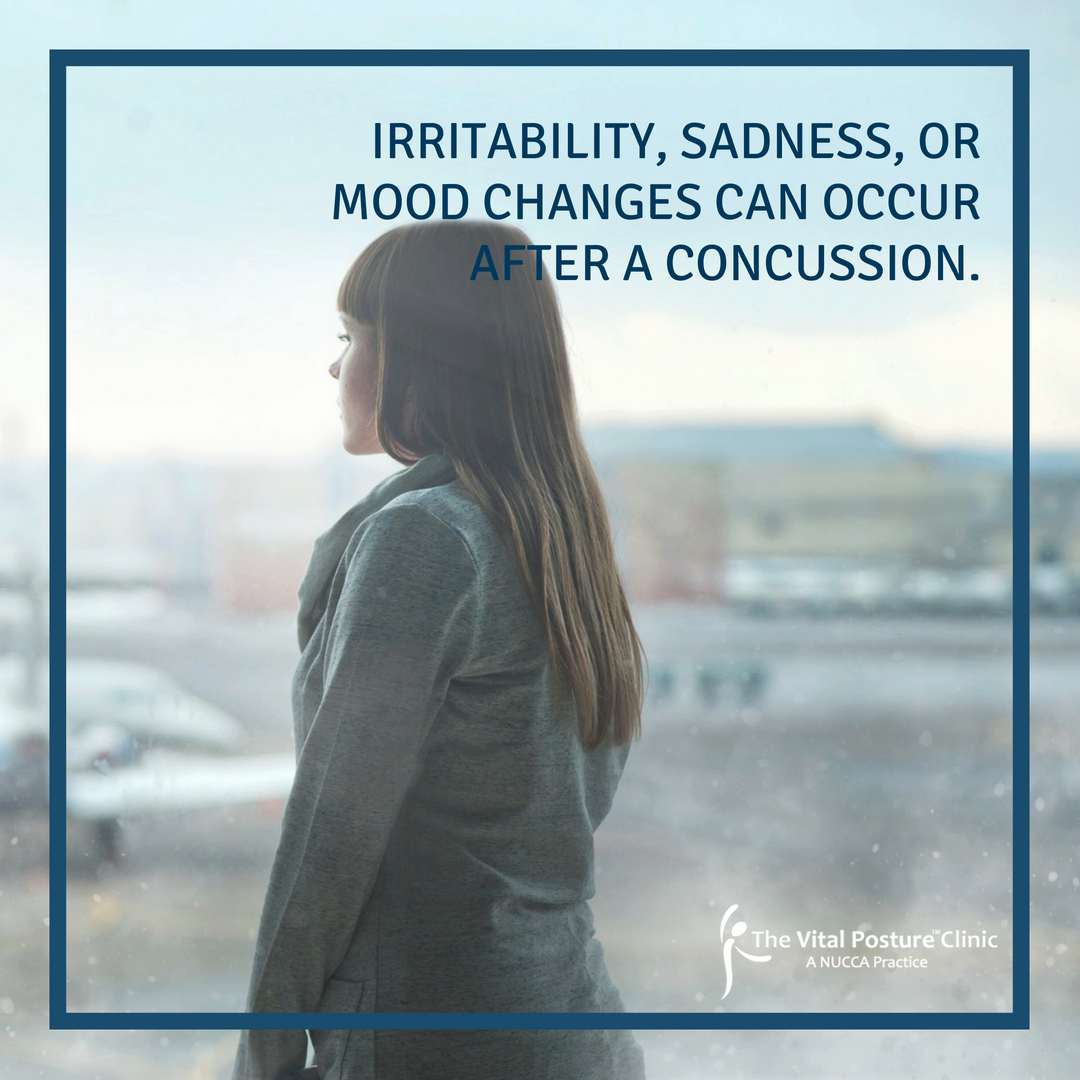
5. Slurred speech or loss of coordination
Balance and speech all takes place in the brain, so your ability to function could be affected by a concussion. Many people experience slurred or other changes in speech patterns that can be otherwise unexplained.Putting it all together: No symptom alone is necessarily a sign of a concussion
No one symptom by itself is a sign of a concussion. If you vomit after being hit in the head, you might not necessarily have a brain injury. But if your concussion symptoms aren’t going away or lasting longer than what you would have expected, you could be experiencing post-concussion syndrome.
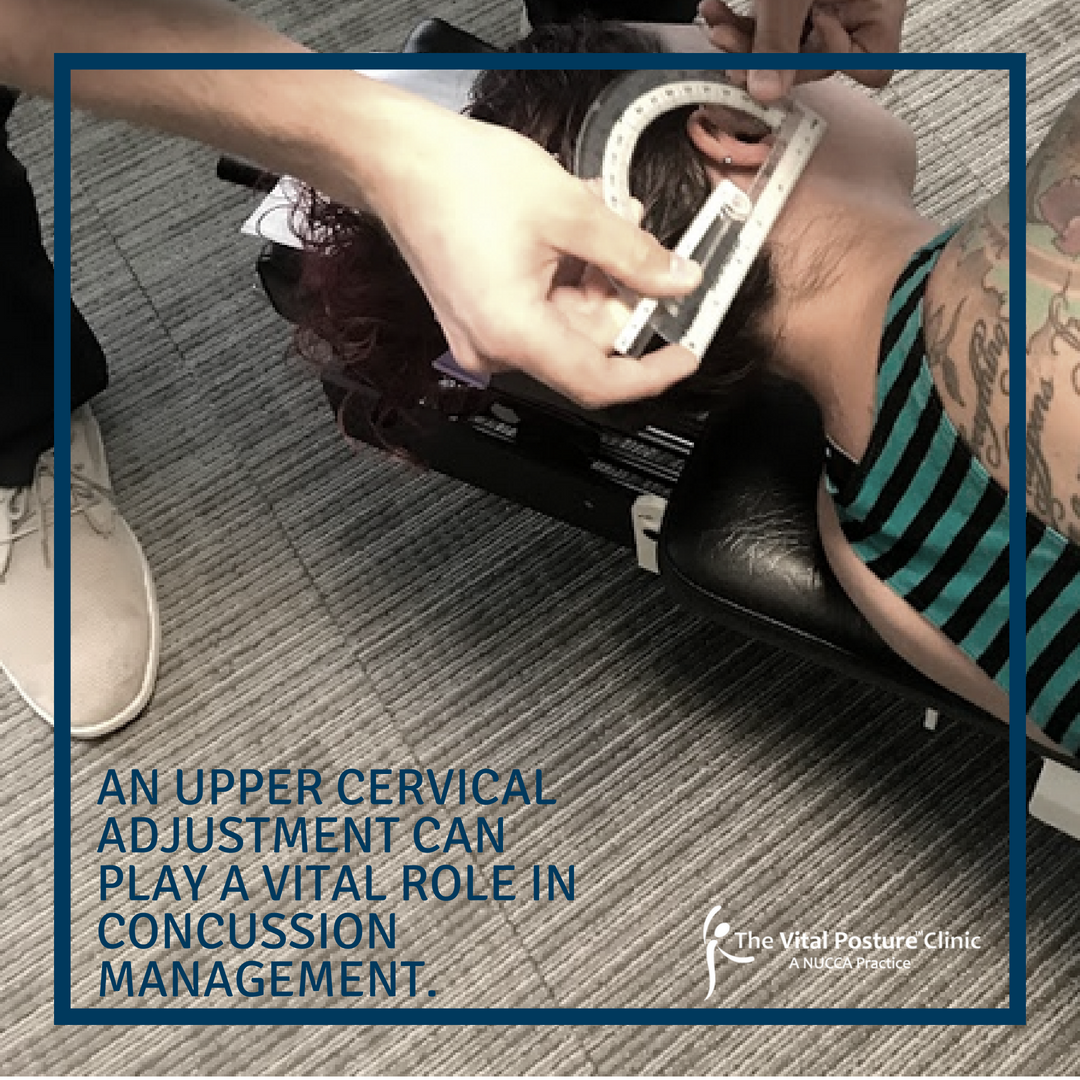
Lingering symptoms like headaches, dizziness, mood changes, vision problems, trouble sleeping, and fatigue are signs that can last weeks or months after an injury. Most doctors consider symptoms lasting over three months a sign of the syndrome. Many of these can also be attributed to an underlying neck injury that has not been assessed and addressed properly.
People who already suffer from chronic pain, migraines, or a disorder such as anxiety, or depression may also be more likely to experience this syndrome. Every case is different, so treatment time varies.
NUCCA chiropractic care and upper cervical spine adjustment plays a vital role in concussion management. A NUCCA adjustment can work to balance and stabilize the neck, which can lead to optimal communication between the brain and the body, helping to keep the nasty symptoms of post-concussion syndrome at bay.
To learn about our NUCCA post-concussion treatment in Calgary, feel free to send your questions to our team or read more about concussions and how to manage your injury at www.concussionconfusion.com. As your post-concussion team, we can help rebalance your body and help you begin to feel like yourself again.



